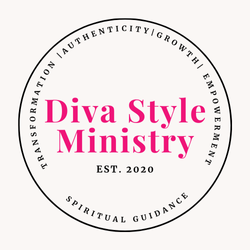The Transformative Power of Kindness: Emotional, Physical, and Spiritual Benefits
People often talk about feeling the “warm fuzzies,” experiencing an inner glow or having an overall sense of happiness. These feelings frequently occur when we engage in or witness acts of kindness. But kindness is more than just a fleeting emotion—it has lasting benefits for emotional and physical health, nourishing the soul in profound ways. Being kind lifts your spirits, fosters inner peace, and creates a beautiful connection between mind and body.
What is Kindness?
Kindness is the simple act of being considerate, compassionate, and thoughtful toward others. It doesn’t require grand gestures. Sometimes, it’s as effortless as offering a warm smile to a stranger, listening attentively to a friend, or showing patience in stressful situations. Even small acts like holding the door open, giving a compliment, or allowing someone to merge in traffic can have a profound impact.
Kindness also includes random acts of kindness—thoughtful gestures without expecting anything in return. Examples include helping an elderly person carry groceries, paying for someone’s coffee, or sending a heartfelt note to a friend. These spontaneous actions can brighten someone’s day and inspire them to pay it forward, creating a ripple effect of positivity.
What makes kindness even more powerful is its universality. It transcends language, culture, and social barriers, connecting us on a deeply human level. Being kind not only uplifts others but also enriches our own lives in ways we might not expect.
Personal Benefits of Kindness
According to a meta-analysis conducted by Oxford University, numerous studies confirm that practicing kindness positively impacts mental and physical health. In a 2017 study, participants who performed acts of kindness for just seven days experienced increased:
- Happiness
- Life Satisfaction
- Compassion
- Trust in Others
- Positive Feelings Toward Humanity
- Stronger Social Connections
Interestingly, the more acts of kindness participants performed, the greater their sense of well-being. This shows that kindness operates like a muscle—the more you use it, the stronger it gets.
When you practice kindness, your brain releases oxytocin and serotonin, chemicals associated with calm, connection, and happiness. Oxytocin, called the “love hormone,” enhances bonding and reduces stress. Serotonin helps regulate mood, promoting emotional stability. These neurochemical changes make us feel good and improve our overall health, reducing anxiety and enhancing resilience.
Long-Lasting Benefits of Kindness
Kindness doesn’t just create temporary feelings of happiness—it fosters long-term emotional growth. One of the most powerful ways to sustain kindness is to start with self-kindness. This means forgiving yourself for mistakes, embracing your imperfections, and treating yourself with compassion.
When you practice self-kindness, you develop a deeper self-awareness and emotional intelligence. You begin to recognize the shared humanity in others, making it easier to respond with empathy and patience rather than judgment or frustration. This shift in mindset helps build stronger, healthier personal and professional relationships.
Over time, kindness becomes a proactive habit. Instead of reacting with negativity, you naturally seek opportunities to uplift others. This doesn’t mean ignoring difficult emotions but approaching life with an open heart. Kindness becomes part of who you are, not just something you do.
Even more remarkable is how kindness shapes memory. While it’s easy to dwell on negative experiences, regular acts of kindness can rewire the brain to focus on positive interactions. This “kindness bias” helps cultivate a more optimistic outlook, leading to greater emotional resilience.
The Physical Connection: How Kindness Affects Your Health
Kindness isn’t just good for the heart metaphorically—it’s good for your physical heart too. Research from Dartmouth College and RandomActsofKindness.org reveals that practicing kindness can lead to measurable health benefits, including:
- Reduced Pain: Acts of kindness trigger the release of endorphins, the body’s natural painkillers.
- Lower Blood Pressure: The release of oxytocin promotes heart health by reducing blood pressure.
- Slower Aging: Kindness reduces inflammation and stress, both of which are linked to aging.
- Longer Lifespan: Strong social connections, often built through kindness, are associated with increased longevity.
Kindness also fosters gratitude, which amplifies these benefits. According to research from the Mayo Clinic, gratitude can:
- Improve sleep quality
- Decrease fatigue
- Boost self-confidence
- Reduce symptoms of depression
When you practice kindness, you’re not just improving someone else’s day—you’re enhancing your own physical and emotional well-being.
The Ripple Effect of Kindness
Kindness is contagious. When you perform a kind act, it often inspires others to do the same. This ripple effect can transform entire communities, fostering a culture of compassion and connection.
Consider the simple act of paying for someone’s coffee. The recipient feels uplifted and may choose to pass on that kindness to someone else. Before long, a small gesture has created a chain reaction of positivity, touching lives you’ll never even know about.
How to Cultivate Kindness in Daily Life
Kindness doesn’t require elaborate plans or significant resources. Here are simple ways to incorporate kindness into your daily routine:
- Start Small: Hold the door open, offer a genuine compliment, or smile at someone.
- Practice Active Listening: Give others your full attention without interrupting.
- Show Gratitude: Express appreciation regularly, even for the little things.
- Be Kind to Yourself: Practice self-compassion and avoid negative self-talk.
- Look for Opportunities: Whether it’s helping a neighbor or volunteering, seek ways to make a positive impact.
Final Thoughts
Kindness is more than a virtue; it’s a transformative force that enhances emotional well-being, strengthens social bonds, and promotes physical health. It’s a gift that benefits both the giver and the receiver, creating a cycle of positivity that can ripple through families, communities, and even the world.
So, the next time you have the opportunity to be kind, seize it—not just for others but for the profound impact it will have on your heart, mind, and soul.
Ready to embrace a life of Kindness and Generosity?
Cultivating Kindness in an Interconnected World: Creating a Life of Generosity and Kindness to Honor Our Shared Humanity
Part of the SoulScript Gateway Essentials series, it provides 10 actionable steps, journaling prompts, affirmations, and a curated reading list to help you bring these transformative values into your everyday life.
Take your practice even further with the companion course audio, created to deepen your connection to kindness and generosity.
Before diving in, listen to a 2-minute audio sample of the article below for a quick dose of inspiration:
The mini-course is available for just $12;
Add the course audio for just $8.
Take the first step toward a more
compassionate and connected life today!

Honor our shared humanity and start your journey toward a kinder and more generous life today!
Unfortunately, due to the immediate access to digital products
All Sales are Final and Nonrefundable.





